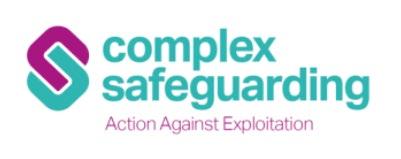
1 minute read
Case study: Greater Manchester Complex Safeguarding Hub
Devolved Administrations. A strong relationship needs to be fostered by support organisations with both a child and their family, with attention to what is causing a young person’s distress, particularly the experience of lengthy waiting times such as for NRM decisions.
v. For more information see: https://www. manch estersafe guarding partnership. co.uk/ resource/ complexsafeguarding-inmanchester/
vi. For more information see https://www. itsnotokay. co.uk/ professionals/ act/ The Greater Manchester Complex Safeguarding Hub, v launched in October 2018, is a multi-agency service which aims to identify and disrupt exploitation, to assess and understand risk both to individuals and across the city, and deliver interventions to those at risk and survivors of exploitation. To access the Complex Safeguarding Hub, a child must receive a referral from their allocated social worker. There were two particular areas of best practice highlighted in this initiative: the collaboration with young people and the self-reflective nature of the work. For example, the strength-based model of intervention, Achieving Change Together (ACT),vi was co-designed by young people. The ACT model enables young people to build a relationship with one social worker, working together to establish a young person’s needs and what care they require. Due to the small caseload given to ACT workers, these practitioners have the time to invest in each young person. Furthermore, the Complex Safeguarding Hub conducted audits of young people’s case files, which led to reflective conversations with caseworkers on decisions made and subsequent outcomes for the child. This was not intended as an inspection, but an opportunity to highlight challenges in the case, noting both good practice and areas of improvement to help foster development.
Recommendation 3: Local Child Safeguarding Partnerships (England and Wales), Child Protection Committees (Scotland) and the Safeguarding Board for Northern Ireland should ensure new practice and policies across all sectors are co-produced, where appropriate, with the children and survivors who are most affected by their implementation. • This involves working alongside young people and their families in the creation of both individual care plans and models of support. • It is essential that victims and survivors are appropriately compensated for their time and energy. • Further attention should also be given to skills training and development opportunities informed by survivors’ experiences and wishes.






